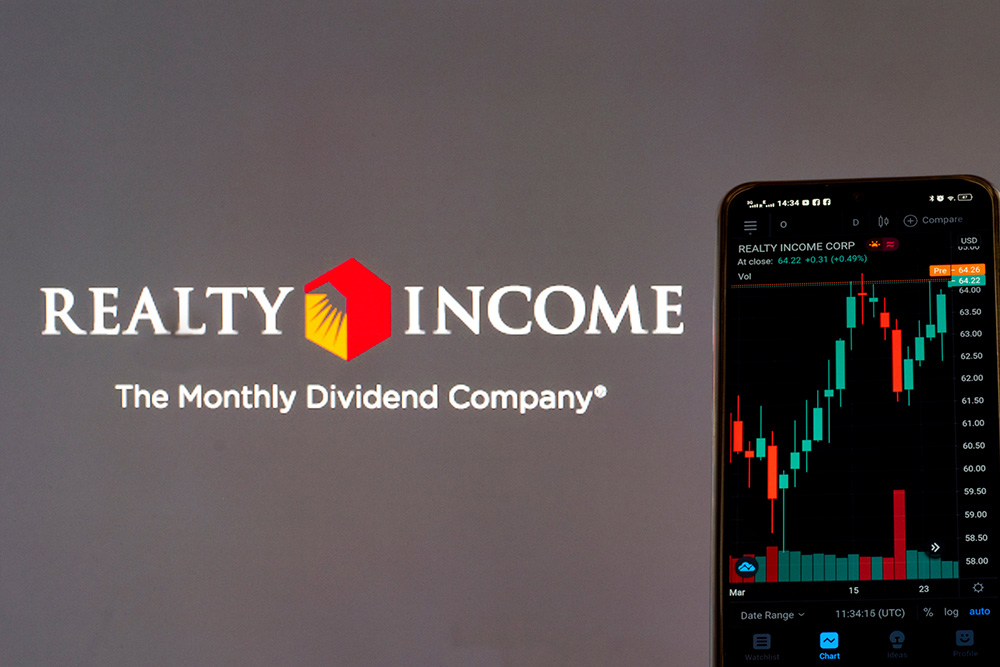Realty Income (NYSE: O) is a Dividend Aristocrat, which means it’s a member of the S&P 500 that has raised its dividend every year for at least 25 years.
It’s done so every year since it began paying a dividend in 1994, which puts its streak at 29 years and counting. Even more impressively, it has boosted its dividend for 104 consecutive quarters – that’s 26 years, for those not doing the math at home.
The company pays dividends monthly (it even calls itself “The Monthly Dividend Company”), and thanks to a drop in its stock price this year, it sports a 6% yield.
But can investors expect this nearly three-decade streak to continue? Or do they have to worry that the stock price decline is signaling a cut in the dividend?
Realty Income is a real estate investment trust, or REIT. It owns more than 13,000 retail properties in the U.S. and another 300 across Europe.
Walgreens and Dollar General are its largest tenants. Other well-known names include Dollar Tree, 7-Eleven and Wynn Resorts.
Since Realty Income is a REIT, we’ll look at funds from operations (FFO), which is the figure REITs use to measure their cash flow.
Realty Income’s FFO has been on a steady march higher.

You can see FFO has been rising… and is expected to jump again next year.
And even though the company has been consistently raising its dividend, FFO has more than kept up with the rising payouts.
This year, Realty Income is forecast to pay shareholders $2.2 billion, which is 85% of its FFO. Next year, that figure is projected to fall to 70%. That means for every dollar of cash flow the company generates, it will pay out an estimated $0.70 in dividends.
Realty Income has one of the best dividend-raising track records you’ll find. Combined with plenty of cash flow to support the dividend, that means Realty Income’s 6% yield is very safe.
Dividend Safety Rating: A

If you have a stock whose dividend safety you’d like me to analyze, leave the ticker symbol in the comments section.
You can also take a look to see whether we’ve written about your favorite stock recently. Just click on the word “Search” at the top right part of the Wealthy Retirement homepage, type in the company name and hit “Enter.”
Also, keep in mind that Safety Net can analyze only individual stocks, not exchange-traded funds, mutual funds or closed-end funds.
